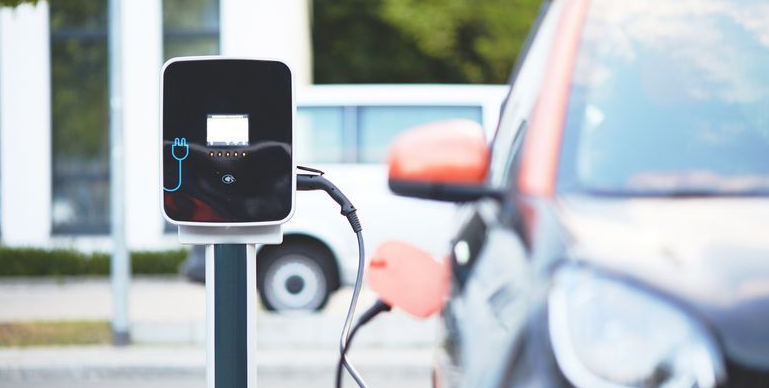Savills India reports that India’s EV market growth, fueled by government policies and rising fuel costs, will require significant real estate investment. By 2030, an estimated USD 7.5 to 9 billion will be needed for land acquisition and facility development for EV manufacturing, battery production, and charging stations.
- Updated On Jun 5, 2025 at 02:40 PM IST
 The report further estimated 5,760 to 6,852 acres of land by 2030 to support EV manufacturing, lithium-ion battery plants, and public charging infrastructure.
The report further estimated 5,760 to 6,852 acres of land by 2030 to support EV manufacturing, lithium-ion battery plants, and public charging infrastructure.“>
Nearly 6,900 acre of land and USD 9 billion investments will be required by 2030 for setting up facilities for EV (electric vehicle) manufacturing, lithium-ion battery production and public charging stations, according to Savills India. Real estate consultant Savills India has released report ‘Charged for Change: How EVs Are Reshaping Indian Real Estate’ stating that the EV market in India has witnessed significant growth in recent years, driven by market forces, government policies, rising environmental concerns, and increasing fuel costs. The government has launched several initiatives to accelerate EV adoption and strengthen the supporting ecosystem. “An investment of USD 7.5 to 9 billion will be required by 2030, primarily for land acquisition and the development of facilities for EV manufacturing, lithium-ion battery production, and public charging stations,” the consultant said.
In high-adoption scenario, the required investments will be USD 9 billion while USD 7.5 billion will be needed in the case of medium adoption.
The report further estimated 5,760 to 6,852 acres of land by 2030 to support EV manufacturing, lithium-ion battery plants, and public charging infrastructure. Srinivas N, Managing Director, Industrial & logistics, Savilla India, said, “Aligning with India’s target of achieving 30 per cent EV penetration by 2030, the real estate sector is expected to experience significant growth driven by the rise in EV adoption.” The growing demand for EVs will stimulate the need for multiple real estate segments, including industrial and warehousing spaces to support EV and battery manufacturing, EV assembly units, and the storage and distribution of EV components and batteries, he added.
Additionally, the expansion of supply chains will increase the demand for strategically located warehouses and logistics parks, said Srinivas.
“The government’s role with several policies and various initiatives, collectively aims to establish a robust EV ecosystem in the country by fostering innovation, investment and infrastructure development while addressing climate change and energy security concerns,” he said.
Ministry of Road Transport and Highways (MoRTH), in line with projections by NITI Aayog and the Rocky Mountain Institute (RMI), estimates cumulative EV sales in India to reach 25.3-31.8 million units by 2030 – an annual average of 4.2 to 5.3 million units.
According to Savills, this will drive land requirement of 2,009 to 2,467 acres for manufacturing facilities, with a built-up potential of 43.8 to 53.7 million square feet.
- Published On Jun 5, 2025 at 02:38 PM IST
Join the community of 2M+ industry professionals
Subscribe to our newsletter to get latest insights & analysis.




